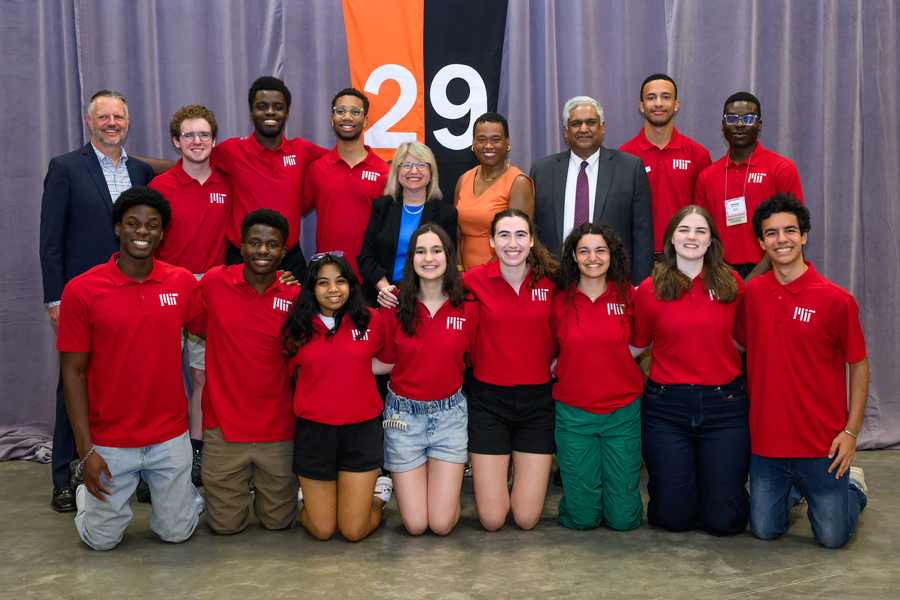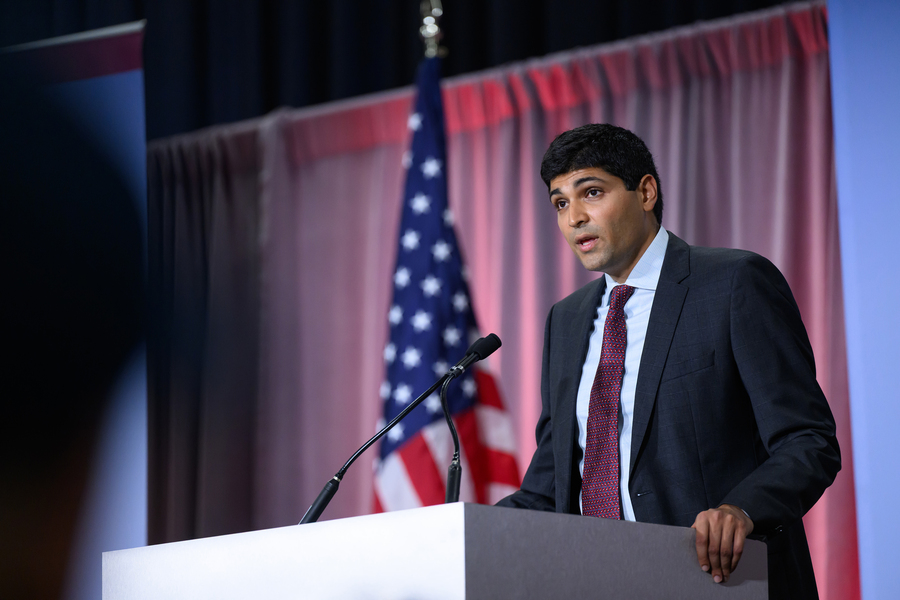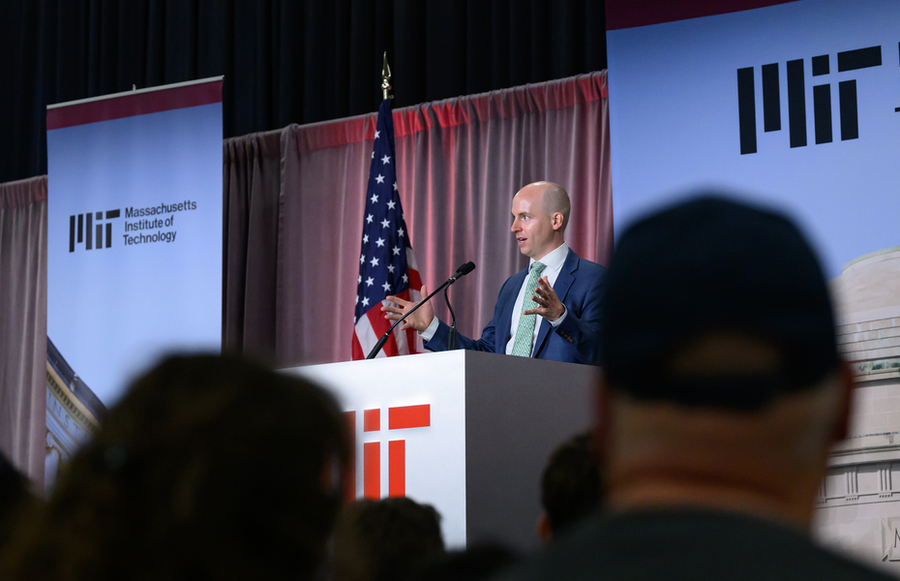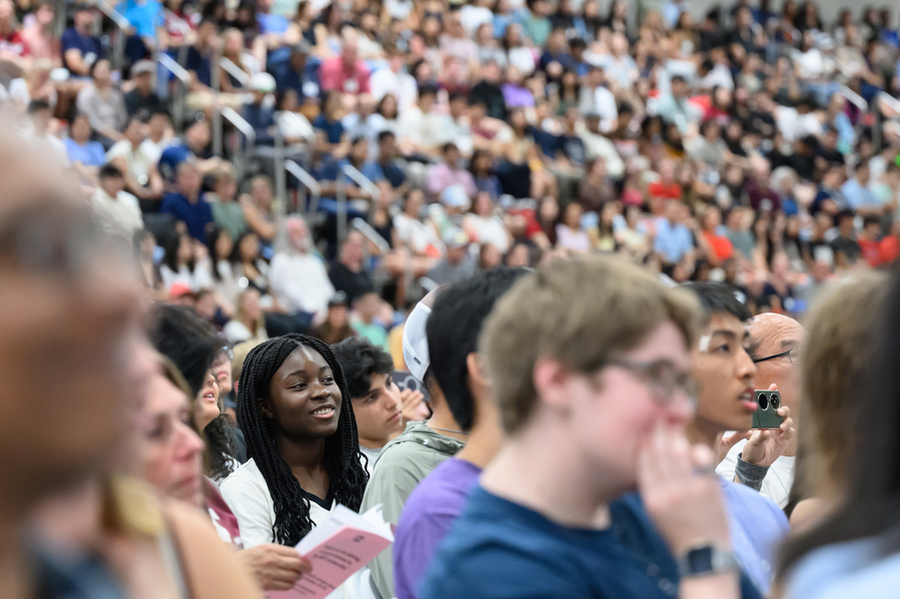In welcoming the undergraduate Class of 2029 to campus in Cambridge, Massachusetts, MIT President Sally Kornbluth began the Institute's convocation on Sunday with a greeting that underscored MIT's confidence in its new students.
"We believe in all of you, in the learning, making, discovering, and inventing that you all have come here to do," Kornbluth said. "And in your boundless potential as future leaders who will help solve real problems that people face in their daily lives."
She added: "If you're out there feeling really lucky to be joining this incredible community, I want you to know that we feel even more lucky. We're delighted and grateful that you chose to bring your talent, your energy, your curiosity, creativity, and drive here to MIT. And we're thrilled to be starting this new year with all of you."
The event, officially called the President's Convocation for First-years and Families, was held at the Johnson Ice Rink on campus.
While recognizing that academic life can be "intense" at MIT, Kornbluth highlighted the many opportunities available to students outside the classroom, too. A biologist and cancer researcher herself, Kornbluth observed that students can participate in the Undergraduate Research Opportunities Program (UROP), which Kornbluth called "an unmissable opportunity to work side by side with MIT faculty at the front lines of research." She also noted that MIT offers abundant opportunities for entrepreneurship, as well as 450 official student organizations.
"It's okay to be a beginner," Kornbluth said. "Join a group you wouldn't have had time for in high school. Explore a new skill. Volunteer in the neighborhoods around campus."
And if the transition to college feels daunting at any point, she added, MIT provides considerable resources to students for well-being and academic help.
"Sometimes the only way to succeed in facing a big challenge or solving a tough problem is to admit there's no way you can do it all yourself," Kornbluth observed. "You're surrounded by a community of caring people. So please don't be shy about asking for guidance and help."
The large audience heard additional remarks from two faculty members who themselves have MIT degrees, reflecting on student life at the Institute.
As a student, "The most important things I had were a willingness to take risks and put hard work into the things I cared about," said Ankur Moitra SM '09, PhD '11, the Norbert Wiener Professor of Mathematics.




Previous item Next item
He emphasized to students the importance of staying grounded and being true to themselves, especially in the face of, say, social media pressures.
"These are the things that make it harder to find your own way and what you really care about," Moitra said. "Because the rest of the world's opinion is right there staring you in the face, and it's impossible to avoid it. And how will you discover what's important to you, what's worth pouring yourself into?"
Moitra also advised students to be wary of the tech tools "that want to do the thinking for you, but take away your agency" in the process. He added: "I worry about this because it's going to become too easy to rely on these tools, and there are going to be many times you're going to be tempted, especially late at night, with looming p-set deadlines. As educators, we don't always have fixes for these kinds of things, and all we can do is open the door and hope you walk through it."
Beyond that, he suggested,"Periodically remind yourself about what's been important to you all along, what brought you here. For your next four years, you're going to be surrounded by creative, clever, passionate people every day, who are going to challenge you. Rise to that challenge."
Christopher Palmer PhD '14, an associate professor of finance in the MIT Sloan School of Management, began his remarks by revealing that his MIT undergraduate application was not accepted - although he later received his doctorate at the Institute and is now a tenured professor at MIT.
"I played the long game," he quipped, drawing laughs.
Indeed, Palmer's remarks focused on cultivating the resilience, focus, and concentration needed to flourish in the long run.
While being at MIT is "thrilling," Palmer advised students to "build enough slack into your system to handle both the stress and take advantage of the opportunities" on campus. Much like a bank conducts a "stress test" to see if it can withstand changes, Palmer suggested, we can try the same with our workloads: "If you build a schedule that passes the stress test, that means time for curiosity and meaningful creativity."
Students should also avoid the "false equivalency that your worth is determined by your achievements," he added. "You have inherent, immutable, instrinsic, eternal value. Be discerning with your commitments. Future you will be so grateful that you have built in the capacity to sleep, to catch up, to say 'Yes' to cool invitations, and to attend to your mental health."
Additionally, Palmer recommended that students pursue "deep work," involving "the hard thinking where progress actually happens" - a concept, he noted, that has been elevated by computer scientist Cal Newport SM '06, PhD '09. As research shows, Palmer explained, "We can't actually multitask. What we're really doing is switching tasks at high frequency and incurring a small cost every single time we switch our focus."
It might help students, he added, to try some structural changes: Put the phone away, turn off alerts, pause notifications, and cultivate sleep. A healthy blend of academic work, activities, and community fun can emerge.
Concluding her own remarks, Kornbluth also emphasized that attending MIT means being part of a community that is respectful of varying viewpoints and all people, and sustains an ethos of fair-minded understanding.
"I know you have extremely high expectations for yourselves," Kornbluth said, adding: "We have high expectations for you, too, in all kinds of ways. But I want to emphasize one that's more important than all the others - and that's an expectation for how we treat each other. At MIT, the work we do is so important, and so hard, that it's essential we treat each other with empathy, understanding and compassion. That we take care to express our own ideas with clarity and respect, and make room for sharply different points of view. And above all, that we keep engaging in conversation, even when it's difficult, frustrating or painful."






